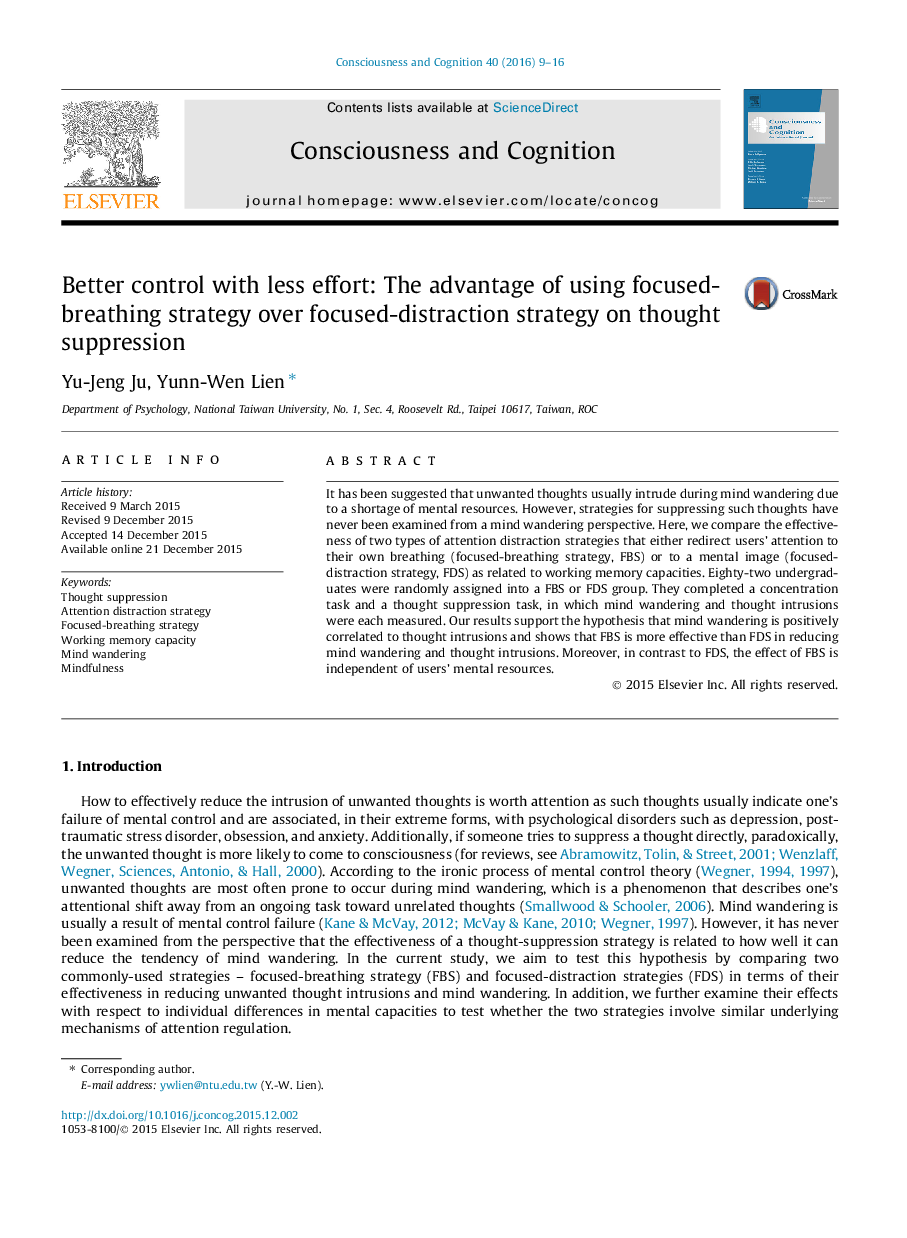| کد مقاله | کد نشریه | سال انتشار | مقاله انگلیسی | نسخه تمام متن |
|---|---|---|---|---|
| 927517 | 1474171 | 2016 | 8 صفحه PDF | دانلود رایگان |
• The more the mind wanders, the more unwanted thoughts intrude.
• Focus on breath reduces mind wandering better than focus on an object.
• Focus on breath reduces thought intrusion better than focus on an object.
• The effect of focused-breathing strategy is independent of users’ mental resources.
• The effect of focused-object strategy is achieved via effortful top-down control.
It has been suggested that unwanted thoughts usually intrude during mind wandering due to a shortage of mental resources. However, strategies for suppressing such thoughts have never been examined from a mind wandering perspective. Here, we compare the effectiveness of two types of attention distraction strategies that either redirect users’ attention to their own breathing (focused-breathing strategy, FBS) or to a mental image (focused-distraction strategy, FDS) as related to working memory capacities. Eighty-two undergraduates were randomly assigned into a FBS or FDS group. They completed a concentration task and a thought suppression task, in which mind wandering and thought intrusions were each measured. Our results support the hypothesis that mind wandering is positively correlated to thought intrusions and shows that FBS is more effective than FDS in reducing mind wandering and thought intrusions. Moreover, in contrast to FDS, the effect of FBS is independent of users’ mental resources.
Journal: Consciousness and Cognition - Volume 40, February 2016, Pages 9–16
